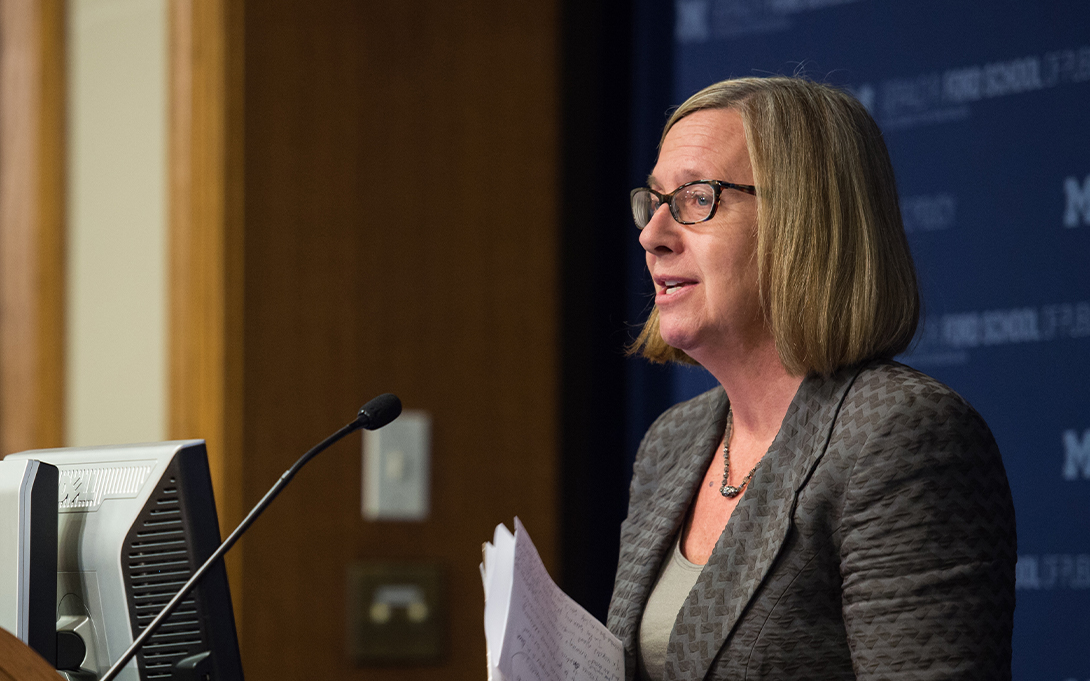
A report by the National Academy of Social Insurance (NASI) looks at the direct effects and outcomes of COVID-19—hospitalizations, deaths, disability, unemployment, and racial and ethnic disparities—and how they will impact social insurance programs, including Social Security, Medicare, Unemployment Insurance, and Workers’ Compensation. "This moment offers an opportunity to evaluate the state of our current social insurance infrastructure," the report states.
The NASI Epidemiological Working Group, composed of 13 public health experts from various institutions, included the Ford School's Paula Lantz, and has been looking at the data since the autumn of 2020.
The reports states: "The Epidemiology Working Group examined a dozen key variables that significantly affect short- and long-term pandemic outcomes and impacts on social insurance programs. The report offers optimistic, probable, and pessimistic scenarios (based on data available as of April 2021). The report also flags how much we still do not know. For example, we still lack high quality, national data on workplace COVID-19 transmission. The prevalence of disability also requires further research, as well as the pandemic’s impact on communities of color."
"The pandemic provides an opportunity to work on the challenges of how to plan for the future and think about health and economic policy infrastructure in an integrated fashion. By working together, we will put in place a stronger foundation, and perhaps even new social insurance programs, so that we might prevent some of the damages this pandemic has caused for populations, especially marginalized, racial or ethnic minority communities.”
The full task force findings can be read here.
